Acmeglim M2 Forte Tablet
$30.00 – $60.00
Available Options:
Want to order in bulk / B2B price ? | Send Inquiry |


Introduction to Acmeglim M2 Forte Tablet
Acmeglim M2 Forte Tablet is a combination of Glimepiride and Metformin which belongs to a group of medicines called Antidiabetic agents. Acmeglim M2 Forte Tablet is used to treat type 2 diabetes mellitus when diet, exercise and the single agent does not result in adequate glycemic control.
Type 2 diabetes is a chronic medical condition in which the body does not make enough insulin, or the produced insulin does not work well. Symptoms include excessive urination, excessive thirst, hunger, fatigue and blurred vision.
Along treatment with Acmeglim M2 Forte Tablet follow regular exercise and diet plan as advised by your doctor to achieve better results.
Before taking Acmeglim M2 Forte Tablet inform your doctor if you have type 1 diabetes mellitus, diabetic ketoacidosis, severe liver or kidney disease, acute heart problems. Inform your doctor if you are pregnant or breastfeeding. It is not suitable for use in children and adolescents under 18 years of age.
Avoid consumption of alcohol during treatment with Acmeglim M2 Forte Tablet as it may increase or decrease the blood sugar lowering action of Acmeglim M2 Forte Tablet and increases the risk of lactic acidosis.
The most common side effects of taking Acmeglim M2 Forte Tablet are taste disturbance, nausea, diarrhea, stomachache and vomiting. Contact your doctor if any of the side effects worsen.
Uses of Acmeglim M2 Forte
- Treats type 2 diabetes mellitus (when diet, exercise and the single agent does not result in adequate glycemic control)
How Does Acmeglim M2 Forte Works?
Acmeglim M2 Forte Tablet controls blood glucose levels, where glimepiride works by increasing the amount of insulin released by the pancreas in order to lower the blood glucose. Metformin works by lowering glucose production in the liver, delaying glucose absorption from intestine and increasing the body’s sensitivity to insulin.
Side Effects of Acmeglim M2 Forte
Common Side Effects
- Taste disturbance
- Nausea
- Diarrhea
- Vomiting
- Stomach pain
- Loss of appetite
Rare Side Effects
- Low blood sugar levels (hypoglycemia)
- Signs of reduced number of red blood cells (skin pale and weakness or breathlessness), platelets (easy bleeding or bruising) or white blood cells (repeated infections)
- Skin rashes, redness, itching and hives
Dosages of Acmeglim M2 Forte
How to Manage Side Effects?
- Contact your healthcare provider
- Do not stop the medication abruptly
- Document the side effects
- Follow dosage instructions
- Avoid alcohol and certain substances
- Inform your healthcare provider about other medications
- Monitor your symptoms:
Warning & Precautions
- Read the patient information leaflet
- Consult your healthcare provider
- Inform your healthcare provider about allergies or medical conditions
- Follow dosage instructions
- Avoid alcohol and certain substances
- Report any side effects or concerns
Safety Advice
- Always take Acmeglim M2 Forte exactly as prescribed by your healthcare provider.
- Do not change the dosage or stop the medication without consulting your doctor.
- Inform your healthcare provider about any allergies or medical conditions you have before starting the medication.
- If you experience any unexpected or severe side effects while taking Acmeglim M2 Forte, seek medical attention immediately.
- Avoid consuming alcohol or certain substances that may interact with the medication, unless approved by your healthcare provider.
- Keep Acmeglim M2 Forte out of reach of children and pets.
- Store the medication as instructed on the packaging or by your pharmacist.
- Do not share the medication with others, as it may not be suitable for their medical conditions.
Frequently Asked Questions
1. What is Acmeglim M2 Forte?
Ans. Acmeglim M2 Forte is a medication used to treat certain medical conditions. It usually comes in the form of tablets.
2. What are the active ingredients in Acmeglim M2 Forte?
Ans. The active ingredients in Acmeglim M2 Forte typically include [List of active ingredients].
3. What is Acmeglim M2 Forte used for?
Ans. Acmeglim M2 Forte is commonly prescribed for [Medical conditions it is used to treat].
4. How does Acmeglim M2 Forte work?
Ans. Acmeglim M2 Forte works by [Brief explanation of its mechanism of action].
| Pack Size | 100 Tablets, 200 Tablets, 300 Tablets |
|---|---|
| Price/Unit | $0.20/unit, $0.25/unit, $0.30/unit |
Be the first to review “Acmeglim M2 Forte Tablet” Cancel reply
Related products
Diabetes
Diabetes
Diabetes
Diabetes
Diabetes
Diabetes
Diabetes
Diabetes
Related Products
Diabetes
Diabetes
Diabetes
Diabetes



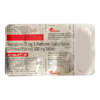

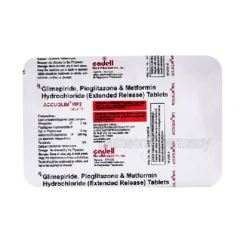

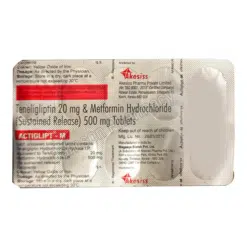
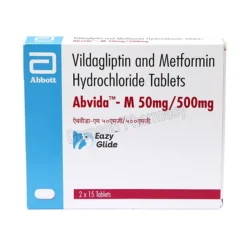

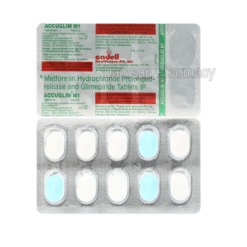


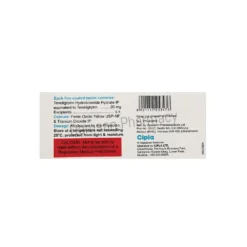
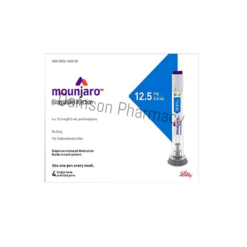
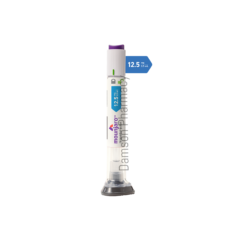
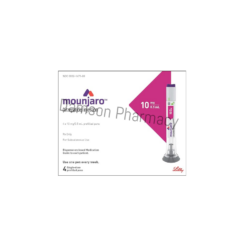
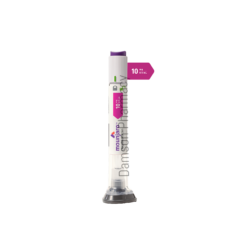
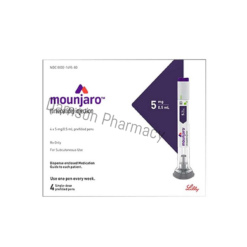


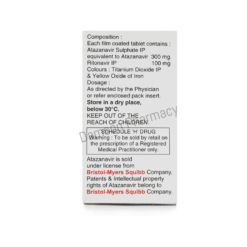
Reviews
There are no reviews yet.